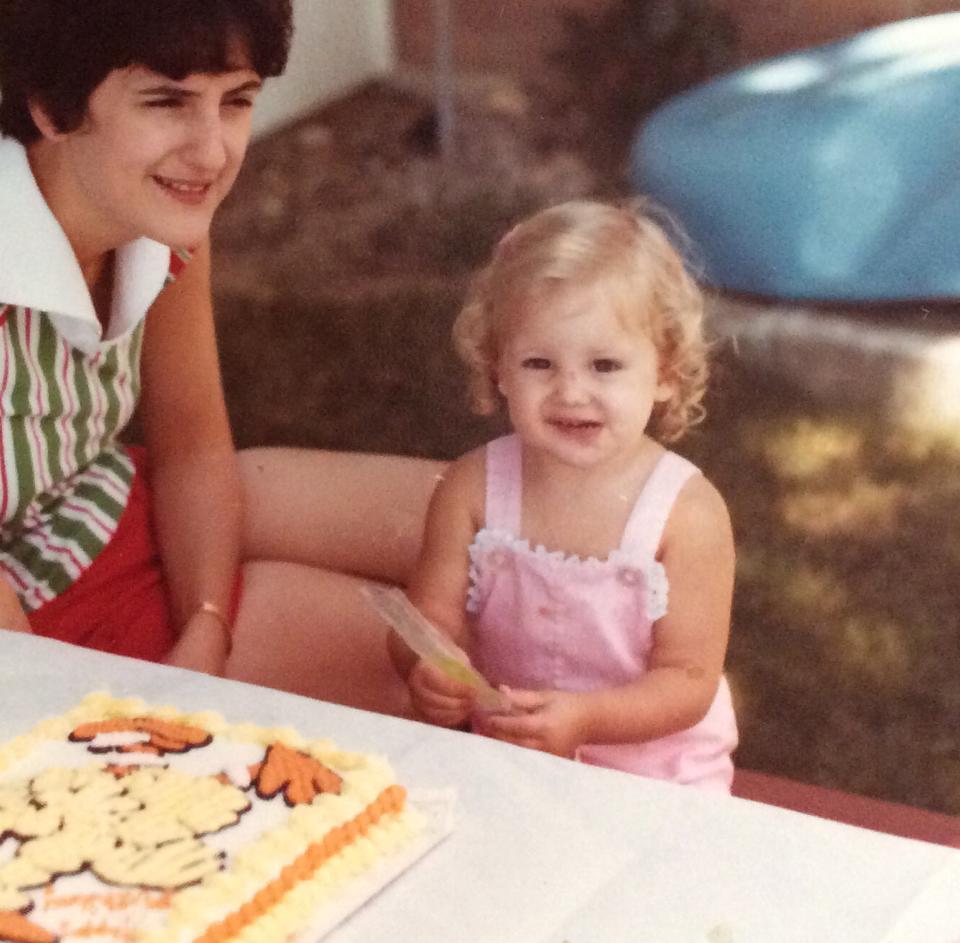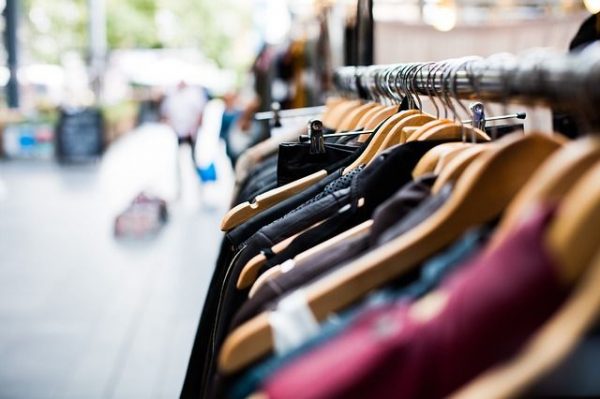(This post may contain affiliate links. For more info, please read my disclosure at the bottom of this page).
Raise your hand if you’re a saver. You know, you never spend money. You’re biologically opposed to pulling out your wallet. You’ve got thousands squirreled away in a savings account somewhere, and you’ve built it up almost without thinking about it.
I bet you grew up in a frugal family, right? Did your mom always pack sandwiches when you went on road trips? Did you rarely, if ever, go out to eat? When you did, the whole family ordered waters and split entrees. Am I close? Did you live in a modest ranch your whole life, wear hand-me-downs, and ride in the same car for a decade (that your parents paid cash for)?
I’m not making fun. No way. I’m actually a little jealous. Here’s why: you had the best possible education growing up. Your frugal family taught you how, almost without thinking about it, to spend less than you earn. You feel trepidation–a healthy fear–towards buying stuff, and you instinctively pause before buying a material item, and think about whether you actually need it or not.

In my family, frugality was made fun of. Yep, that’s right.
Let me clarify something, first: my parents are some of the most generous people I know. Even before we got married, Mr. ThreeYear and I received all kinds of support: airline tickets, help paying for cell phones, gasoline, insurance, major lawn care. My parents have financed ample vacations, meals out, tickets home, and so many other small and large gifts of money, time, and love that I can’t begin to list them all here (Mr. ThreeYear and I can never repay all of these gifts, but we will pay them forward. I’m truly looking forward to the day when I can help the Junior ThreeYears fund their IRAs when they get their first jobs, and invite them on family vacations that we finance). Despite, or perhaps because of, my parents’ generosity, we were a family who disdained frugal practices.

It’s not that my family never practiced frugality. My parents drove their cars for at least eight years, and often longer. My dad owned an old Suburban for practically my whole childhood and refused to upgrade it (he eventually gave Mr. ThreeYear and me the car when we moved back from Chile so we could sell it and add it to our nest egg). My mom never upgraded her kitchen appliances–she used what she’d been given when she got married, no matter how old or puke green (she did get married in the 1970s), and she rarely, if ever, went clothes shopping. We wore hand-me-downs.
But… we also went out to eat a ton (at least once a week) and we never ordered water or split meals. My dad had a plane and a boat. Saving money was never talked about. Even if they were doing it, my parents weren’t talking about it. My sister and I went to expensive camps. There was always too much food in the refrigerator and we regularly threw food out. My parents built a house when I was twelve and no expense was spared (they still live there and have since added on). I would regularly talk my mom into buying me tons of clothes and shoes. I had a job in high school, but I didn’t save the money I made. I didn’t pay for my car, gas, or insurance. Frugality was not a virtue in our house. It was equated with stinginess.
So when I went to college, I had a rude awakening. My parents sent me $250 per month. That did not go far enough for me, what with my eating out twice or three times a week. I eventually talked my parents into letting me cash out my eating plan. I’d use that money to fund my eating out and eat ramen the rest of the time. During my sophomore year, some of my friends wanted to go on a trip to Jamaica. I had just enough money (from my high school graduation gifts and cashing out my meal plan) to pay for the trip. But then, when I came back, I had no money. Zero. That meant no eating out (NOT an option!) so I was forced to go get a job. I became a hostess at an Outback Steakhouse, and then had enough spending money that I could eat out as much as I wanted and stop by the mall and buy clothes. I opened a credit card and mostly paid it off.
Saving? What saving? Why? I had no concept of saving. My family had never talked about the importance of having a savings account (or if they did, it went in one ear and out the other!). I knew that if I ran out of money, my parents would bail me out. If they couldn’t, I had three sets of grandparents who would (my dad’s parents had divorced and remarried before I was born so I grew up with three de-facto sets of grandparents). Yep, I want to punch my old self in the face, too. But her youthful mistakes have made me who I am today, so I have to acknowledge them.
As you can probably tell by my story, I had a good concept of work. When you need money, you go to work. I worked all throughout high school and through three years of college. I made plenty of money. But living frugally? Saving? Not in my vocabulary.
When Mr. ThreeYear and I got married, it took until I read Dave Ramsey’s Total Money Makeover before I really understood the power of saving. The first thing he recommends doing is setting aside $1000 in a baby emergency fund, while you’re paying off your debt. As basic as this tenant sounds, it was revolutionary for me. I’d never thought about or been taught to not spend some of my money so it could be there for emergencies.
When Mr. ThreeYear and I got serious about paying off our debt and increasing our net worth, I read extensively about frugality. Mr. ThreeYear had grown up in a frugal family, and had been taught how to stretch a dollar his whole life. For me, the household manager of our family, I needed to figure out how to become frugal, and fast.
You can’t teach an old dog new tricks… or can you?
From 2008 to 2010, I worked to decrease the amount of money we spent on groceries and eating out. I put cash in envelopes. We started shopping at Aldi and the Farmer’s Market (which was an ethnic grocery store with crazy low prices on our side of Atlanta, not really a farmer’s market at all). After two years of heavy-hitting efforts, I managed to decrease our family’s eating out and spending habits by… $75 per month. I know this because we started tracking our spending using an online tracking tool called Mvelopes (we now use YNAB). What I was doing wasn’t working. I tried everything. But when the money ran out, I just used money from the following month and paid myself back when I could. I worked for years on cutting those expenses, and I made virtually no progress.
Though I worked to decrease our family’s food spending in earnest for eight years, I never managed to do better than decrease what we spent by $100 per month (until this year). Same went for dining out, gasoline, and clothing expenses. We weren’t making much headway in saving on our everyday expenses. Something had to give.
Turns out, something had given. When I analyzed at our overall spending from year to year, I realized that we were saving more and spending less overall. And those small spending gains in all categories were adding up, even when it didn’t feel like it . The statistics told the very inspiring truth that year-to-year, we were becoming more efficient savers. I’ve thought about what it is that we did exactly, even when I failed so abysmally to save in some areas. Here’s what worked for a bad saver:
Automating Your Savings
Mr. ThreeYear and I both automatically contribute to our 401ks. We contribute the maximum to his FSA (we’re hoping an HSA will be available at his company soon). We automatically send a certain amount of money from each of our paychecks to our savings account so that it doesn’t even show up in our checking accounts. It’s taken off the top. We found that if we didn’t see it, we didn’t think about spending it. There never seems to be money “left” at the end of the month.
Making Good Buying Decisions About the Big Stuff
When our family moved to New Hampshire, we decided to rent a house for two years before buying. That gave us an opportunity to save money, scope out our preferred neighborhoods, and be picky. We found a short sale in a good neighborhood after two years and put in an offer. We had to wait about four months for our offer to be accepted, but that was okay. We weren’t in a hurry. We paid less than half of what our mortgage lenders told us we qualified for (and only Mr. ThreeYear was working at the time). That allowed us to take out a fifteen year mortgage. The reasonably-priced house and fifteen year mortgage has meant that now, after five years, we’ve paid a lot less interest and built up a lot more equity than we would have if we’d “stretched” ourselves to buy a McMansion.
As I mentioned above, we sold our expensive (and expensive-to-maintain) cars and bought a Toyota and a Honda, used. We bought cars that were about four years old with low mileage, and spent about $15,000 per car. With these two cars (one of which is a Prius), our gas bill has dropped by half. It costs about $20 to fill up the Prius, and Mr. ThreeYear only fills it up once every two weeks or so, despite his 13-mile commute to work each day.

Buying Stuff that Has Lower Maintenance and Cost of Ownership
Buying cheaper houses and cars than we could afford not only means that we pay/paid less to buy them. It also means our total cost of ownership and maintenance are less than they would be otherwise. It’s cheaper to fill up our cars and service them. If they break, it’s cheaper to fix them. Because we didn’t buy the biggest house in the neighborhood, we pay less to heat and cool it. It has standard-sized appliances, so we didn’t have to shop in specialty stores to outfit it with appliances. The finishes aren’t high end, so we don’t feel as pressured to make the house look perfect (i.e., we painted it ourselves).
Tricking Yourself into Saving Your Raises
When we first moved to New Hampshire, we were saving almost all of our spare money for a new house downpayment (we sold our house in Atlanta in 2010, at the bottom of the market, and had negative equity when we sold it). But, we wanted to contribute enough to Mr. ThreeYear’s 401k to at least receive the company match. So we started contributing 6% of his pay. Then, every time he got a raise (in March), I’d adjust his 401k contributions by the same amount. That way, our take home pay was the same, but the amount we contributed to his 401k continued to increase. In just a few years, we’d hit the maximum amount we could contribute. Now, when Mr. ThreeYear receives a raise, I increase our automatic contributions to our savings account by an equivalent amount. According to a study by these guys, employees are most likely to follow the path of least resistance with their 401ks (and that surprises exactly no one). So, if you know that you’re probably not likely to invest your raises to increase your 401k, check and see if your plan has an automatic plan increase each year. Then you can choose a percentage to automatically increase your savings and it’s done for you.
Tricking ourselves into saving and setting up our life so that we made good spending decisions on our big decisions means that our net worth has grown, reinforcing our behavior and helping us (me!) get better at spending less in other areas. Reading about rockstar savers like The Frugalwoods helps motivate, too. But when it comes to the day-in and day-out of spending less and being more frugal, I have had to reprogram myself or find ways to work around my natural spendiness (and any family member reading this would agree that no matter what family I was born into, I would love to spend!). But I’ve gotten better. A lot better. I hope some of these ideas help you, too.
I’d love to hear what has worked for you to help you spend less-specifically at the grocery store!!



That’s fantastic progress. I’m only of the “lucky” ones who had very frugal parents – sometimes to a fault – and saving money has always been natural to me. As we get older, lifestyle inflation is the biggest risk… It’s SO easy to throw money at the problem and adopt an attitude of “Well, I can afford it now…” Once you automate saving habits and a healthy level of frugalness, the rest comes fairly easily.
Another fellow New Englander here 🙂 I love all the outdoor activities (free to enjoy!) in the area. Kayaking, camping, biking – summer is fantastic up here.
Hi neighbor!! 🙂 Thanks so much for visiting! I agree with you–summer is magical here! We take advantage of as much biking and hiking as we can. I think camping would be great but Mr. ThreeYear’s not much of a camper. I agree that you’re very lucky to have had frugal parents! We suffer with the lifestyle inflation as well. Especially as our net worth increases, I find myself saying, “Well, we’re worth $X; we can afford this!” That’s why I have to create artificial scarcity! I like the idea of a healthy level of frugalness. I’m not there yet but I’m definitely closer than I was! 🙂
Are you talking about my family? Cause it sounds like you stalked my childhood 😛
My Mum (who does the grocery shopping), tends to stock our pantry and deep-freezer like we’re going to war. I think it’s got a lot to do with the cold war mentality of their childhood. But most of the stuff keeps, and while less stuff could get thrown out, I think we do better than most at eating all the food.
I think these are great ideas – and definitely a good place to start. I try to use apps to figure out what’s cheaper where any given week – if apples and oranges are super cheap in one place, I’ll go there for my weekly haul. I use Flipp, but I haven’t really explored any other apps.
Ha! Yes–my mom grew up with really frugal parents, so I think she’s always stocked the pantry like the money’s going to run out or something! And she boxes up leftovers like a champ but then throws them out after they aren’t eaten in a few weeks!
I’m going to check out Flipp. Haven’t heard of it before!! Thanks for the tip! 🙂
This was such a good post. I grew up with a super frugal mother, and a super “spend it all” father. Quite an interesting combination, if you ask me. And I wound up with a mix of their habits. I find that if I’m frugal, it’s easier to save because I’m not going out and spending a bunch, but if the husband and I go out to eat, or to the zoo, or something fun where we spend money, it’s easy to slip into a “we have money; let’s do that mindset” and we end up stressing the last three days before we get paid hoping we won’t run out of gas. Part of it for me is learning to balance my mother’s frugality with my father’s spending love. Definitely not an easy combo.
Ha, I am starting to think I’m a natural spender, not saver. While being a SAHM for the past two years, I’ve been extremely frugal and hardly spent anything on myself. Once I got a job offer last month, I started thinking of stuff I’d like to maybe spend money on! So I will have to fight that lifestyle inflation a bit as our household income goes up, haha. I won’t go crazy spending on random stuff, but I do like the idea of a nice haircut once in awhile, and some great trips in the near future!
I grew up in a very frugal family, and I think it’s so easy to downplay habits that you’ve grown up with. Even at our speediest, my husband and I have lived below ours means, and absolutely this is in part thanks to the families we grew up in.
I think that training is priceless, it really is.